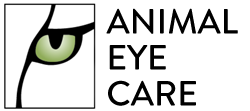Thank you for entrusting us with your pet’s eye care! Should you have an urgent question after our offices are closed, that cannot wait until the following day, one of the veterinary ophthalmologists is available after-hours to provide advice over the phone.
How does the after-hours on-call service work?
Dial the phone number of the clinic you visit most often.
Fremont: (510) 623-0444
Pleasanton: (925) 827-2257
Listen for the prompt to be connected to the answering service. Once connected with the answering service operator, request to be connected to the veterinary ophthalmologist on-call. Please have the following information available, so that we can provide as much assistance as possible:
- The discharge instructions provided to you at your most recent appointment
- All medications that were prescribed by your veterinary ophthalmologist, including those that were discontinued but not discarded.
What should I expect when I contact the on-call service?
One of the veterinary ophthalmologists will be able to discuss your pet’s case with you and try to provide advice or options for care over the phone. Because the on-call schedule rotates weekly among all of the ophthalmologists in the practice, you may not be speaking with the clinician who last examined your pet. The doctors are NOT available to examine patients or perform procedures after-hours nor are we able to fill prescription refill requests through the on-call service. If you or the doctor feel that the condition is an emergency, your pet may be referred to a local emergency hospital or the UC Davis Veterinary Medical Teaching Hospital for evaluation. An ophthalmologist will not be available at the emergency clinic, but one will be available at UC Davis. In all cases, the on-call clinician will contact your regular veterinary ophthalmologist with an update, and a technician or doctor from your Animal Eye Care clinic will contact you the next day that we are open, in order to determine whether scheduling an urgent recheck would be helpful.
What if my pet is having problems that are not associated with the eye?
If your pet is experiencing clinical signs that are not associated with the eye (such as changes in behavior or activity level, seizures, or GI signs like changes in appetite, vomiting, loose stools or diarrhea), we encourage you to contact your primary care veterinarian as well. These clinical signs may or may not be related to eye disease or medications that have been prescribed for eye disease, so we will work with your pet’s primary care veterinarian to ensure that your pet remains as healthy as possible. If there is any concern about the severity of the clinical signs or your pet’s overall health, we may recommend that you take your pet to a local 24-hour veterinary emergency hospital.
What if my pet underwent sedation or general anesthesia today and is now having problems?
If your pet underwent sedation or general anesthesia at Animal Eye Care, and you are concerned about their recovery after being discharged, please do not hesitate to contact us as well as your local 24-hour veterinary emergency hospital. In some cases, we may recommend that you take your pet immediately for evaluation and continuous monitoring overnight with an emergency veterinarian rather than waiting until the next available appointment with your primary care veterinarian.
What does the after-hours on-call service NOT cover?
The on-call service does not fill prescriptions after hours. For this reason, please be mindful of your pet’s medication supply, especially before holiday weekends or when leaving to go out of town. You may leave a message on the answering machine and a pharmacy technician will attempt to fill the prescription the next day that the office is open. Please note that compounded medications may take more than 24 hours to be filled.
